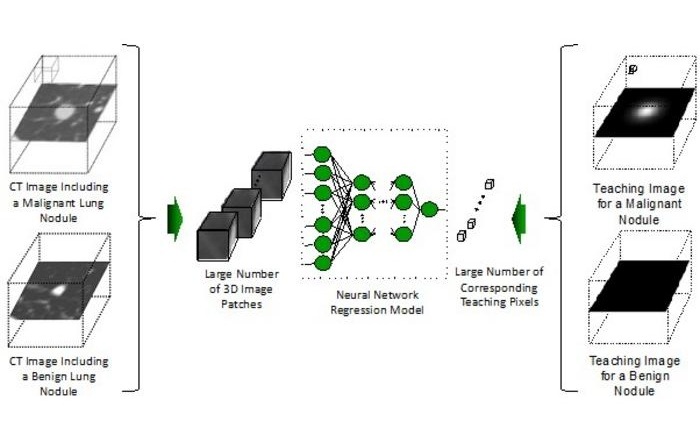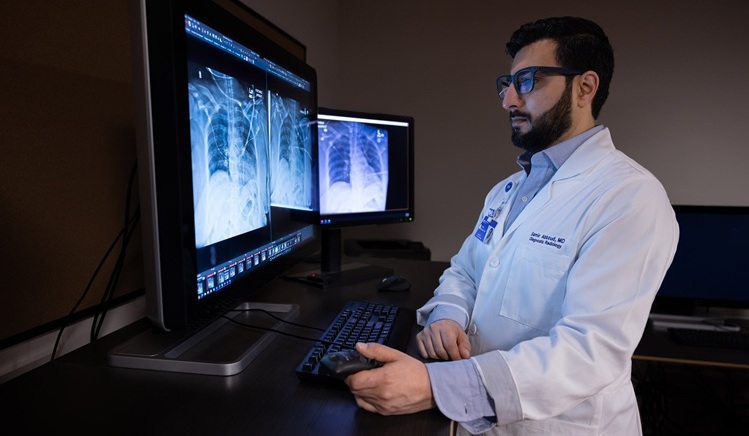Ultrasound Imaging Non-Invasively Tracks Tumor Response to Radiation and Immunotherapy
|
By MedImaging International staff writers Posted on 19 Feb 2025 |
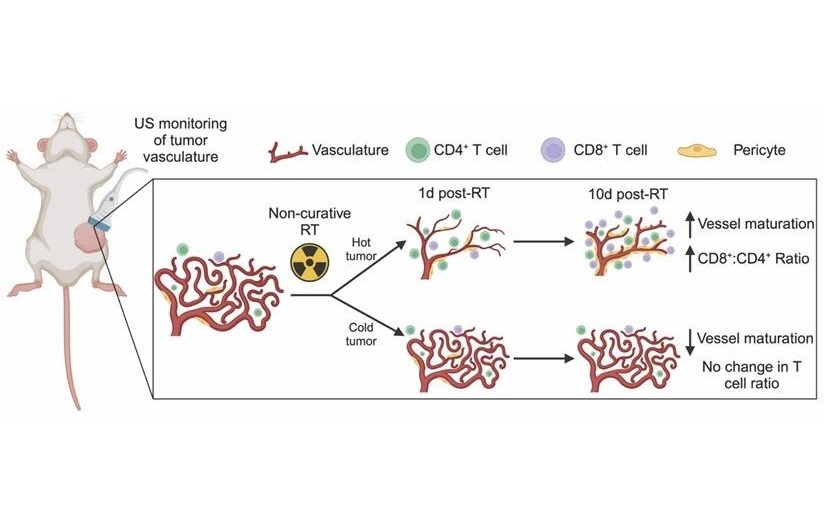
While immunotherapy holds promise in the fight against triple-negative breast cancer, many patients fail to respond to current treatments. A major challenge has been predicting and monitoring how individual tumors react to therapy, with the significant heterogeneity observed across patients complicating the process. Researchers have now identified a promising non-invasive method to track how tumors respond to radiation and immunotherapy, using the body’s own immune system to combat cancer. A groundbreaking study, published in Theranostics, shows how ultrafast power Doppler ultrasound (US) can offer valuable insights into the complex vascular interactions within the tumor microenvironment, potentially transforming personalized cancer treatment approaches.
An interdisciplinary research team from Vanderbilt University (Nashville, TN, USA) has developed an innovative method using ultrafast power Doppler ultrasound to monitor tumor vasculature in real-time in two breast cancer models—metastatic and non-metastatic. By tracking changes in blood vessel networks, the researchers can now gain unprecedented insights into how tumors respond to radiation therapy. The ultrasound measurements revealed a consistent decrease in the tumor vascular index following radiation therapy, which correlated with a significant infiltration of CD8+ T cells into the tumors. These T cells are essential for the immune system’s defense against cancerous cells.
The team also observed an early increase in splenic CD8+ T cells after radiation. The spleen plays a crucial role in the activation and proliferation of these cells, which are vital in fighting blood-borne pathogens and cancerous cells. While the research is still in its early stages, it opens exciting possibilities for improving outcomes in the treatment of triple-negative breast cancer. Monitoring vascular changes to predict therapy responses and shifts in the immune landscape of the tumor may help enhance results for patients with limited treatment options.
“What sets this research apart is its ability to non-invasively track tumor changes that would be generally be detectable via biopsy or imaging methods that may not capture the full response. This ultrasound technique provides a window into a patient’s tumor response to treatment that may help inform clinical decisions more quickly,” said Shannon Martello, the paper’s lead author.
“The findings suggest that ultrafast power doppler ultrasound could become a crucial tool in personalizing cancer treatment. By providing accurate indicators of treatment effectiveness, clinicians may be able to tailor therapies more rapidly and precisely,” added Marjan Rafat, assistant professor of chemical and biomolecular engineering.
Latest Ultrasound News
- Wireless Chronic Pain Management Device to Reduce Need for Painkillers and Surgery
- New Medical Ultrasound Imaging Technique Enables ICU Bedside Monitoring
- New Incision-Free Technique Halts Growth of Debilitating Brain Lesions
- AI-Powered Lung Ultrasound Outperforms Human Experts in Tuberculosis Diagnosis
- AI Identifies Heart Valve Disease from Common Imaging Test
- Novel Imaging Method Enables Early Diagnosis and Treatment Monitoring of Type 2 Diabetes
- Ultrasound-Based Microscopy Technique to Help Diagnose Small Vessel Diseases
- Smart Ultrasound-Activated Immune Cells Destroy Cancer Cells for Extended Periods
- Tiny Magnetic Robot Takes 3D Scans from Deep Within Body
- High Resolution Ultrasound Speeds Up Prostate Cancer Diagnosis
- World's First Wireless, Handheld, Whole-Body Ultrasound with Single PZT Transducer Makes Imaging More Accessible
- Artificial Intelligence Detects Undiagnosed Liver Disease from Echocardiograms
- AI Improves Detection of Congenital Heart Defects on Routine Prenatal Ultrasounds
- AI Diagnoses Lung Diseases from Ultrasound Videos with 96.57% Accuracy
- New Contrast Agent for Ultrasound Imaging Ensures Affordable and Safer Medical Diagnostics
- Ultrasound-Directed Microbubbles Boost Immune Response Against Tumors
Channels
Radiography
view channel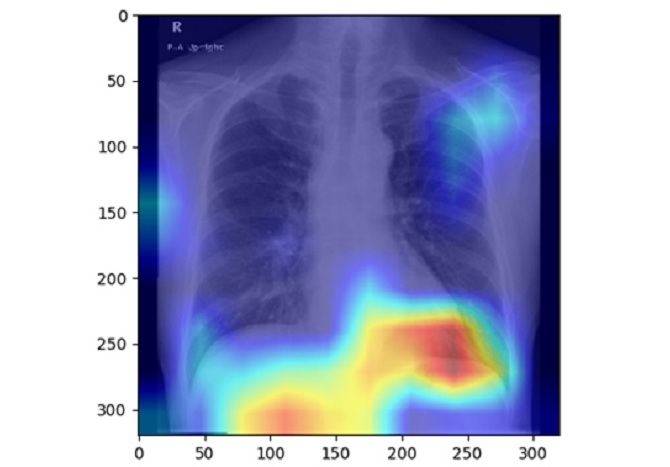
AI Detects Fatty Liver Disease from Chest X-Rays
Fatty liver disease, which results from excess fat accumulation in the liver, is believed to impact approximately one in four individuals globally. If not addressed in time, it can progress to severe conditions... Read more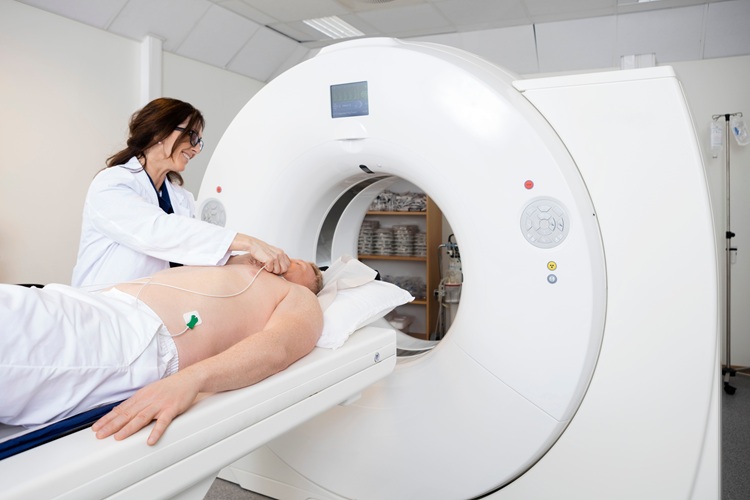
AI Detects Hidden Heart Disease in Existing CT Chest Scans
Coronary artery calcium (CAC) is a major indicator of cardiovascular risk, but its assessment typically requires a specialized “gated” CT scan that synchronizes with the heartbeat. In contrast, most chest... Read moreMRI
view channel
New MRI Technique Reveals Hidden Heart Issues
Traditional exercise stress tests conducted within an MRI machine require patients to lie flat, a position that artificially improves heart function by increasing stroke volume due to gravity-driven blood... Read more
Shorter MRI Exam Effectively Detects Cancer in Dense Breasts
Women with extremely dense breasts face a higher risk of missed breast cancer diagnoses, as dense glandular and fibrous tissue can obscure tumors on mammograms. While breast MRI is recommended for supplemental... Read moreNuclear Medicine
view channel
Novel Bacteria-Specific PET Imaging Approach Detects Hard-To-Diagnose Lung Infections
Mycobacteroides abscessus is a rapidly growing mycobacteria that primarily affects immunocompromised patients and those with underlying lung diseases, such as cystic fibrosis or chronic obstructive pulmonary... Read more
New Imaging Approach Could Reduce Need for Biopsies to Monitor Prostate Cancer
Prostate cancer is the second leading cause of cancer-related death among men in the United States. However, the majority of older men diagnosed with prostate cancer have slow-growing, low-risk forms of... Read moreGeneral/Advanced Imaging
view channel
CT Colonography Beats Stool DNA Testing for Colon Cancer Screening
As colorectal cancer remains the second leading cause of cancer-related deaths worldwide, early detection through screening is vital to reduce advanced-stage treatments and associated costs.... Read more
First-Of-Its-Kind Wearable Device Offers Revolutionary Alternative to CT Scans
Currently, patients with conditions such as heart failure, pneumonia, or respiratory distress often require multiple imaging procedures that are intermittent, disruptive, and involve high levels of radiation.... Read more
AI-Based CT Scan Analysis Predicts Early-Stage Kidney Damage Due to Cancer Treatments
Radioligand therapy, a form of targeted nuclear medicine, has recently gained attention for its potential in treating specific types of tumors. However, one of the potential side effects of this therapy... Read moreImaging IT
view channel
New Google Cloud Medical Imaging Suite Makes Imaging Healthcare Data More Accessible
Medical imaging is a critical tool used to diagnose patients, and there are billions of medical images scanned globally each year. Imaging data accounts for about 90% of all healthcare data1 and, until... Read more
Global AI in Medical Diagnostics Market to Be Driven by Demand for Image Recognition in Radiology
The global artificial intelligence (AI) in medical diagnostics market is expanding with early disease detection being one of its key applications and image recognition becoming a compelling consumer proposition... Read moreIndustry News
view channel
GE HealthCare and NVIDIA Collaboration to Reimagine Diagnostic Imaging
GE HealthCare (Chicago, IL, USA) has entered into a collaboration with NVIDIA (Santa Clara, CA, USA), expanding the existing relationship between the two companies to focus on pioneering innovation in... Read more
Patient-Specific 3D-Printed Phantoms Transform CT Imaging
New research has highlighted how anatomically precise, patient-specific 3D-printed phantoms are proving to be scalable, cost-effective, and efficient tools in the development of new CT scan algorithms... Read more
Siemens and Sectra Collaborate on Enhancing Radiology Workflows
Siemens Healthineers (Forchheim, Germany) and Sectra (Linköping, Sweden) have entered into a collaboration aimed at enhancing radiologists' diagnostic capabilities and, in turn, improving patient care... Read more












